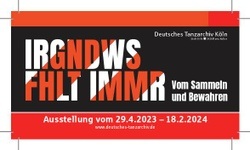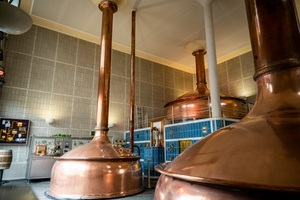Eröffnung: Goldene Jahre - Kölner Tanzträume. Aufbruch in den 1960er Jahren
In the organizer's words:
Forgotten? Transfigured? Remembered! The 1960s were a decade of dance-aesthetic and dance-political awakenings in Cologne. In the midst of a city still scarred by the aftermath of the Second World War, an unprecedented creative drive developed, turning visions and dreams into reality in a very short space of time: the newly built opera house, ceremoniously opened in 1957, was followed by the rebuilding of the Cologne dance ensemble under an internationally renowned choreographer, the founding of a dance training center and the takeover of the International Summer Academy of Dance from Krefeld. A ballet week with international dance guest performances delights the people of Cologne. And not only them! The cathedral city becomes a meeting place for dance and ballet lovers from Germany and around the world.
The visionary nature of the dance scene in Cologne in those years is demonstrated by the lively discussions about a German National Ballet, a Rhine-Ruhr Ballet or a German Ballet on the Rhine. But not all dreams become reality. And time and again, there are bitter disputes about dance aesthetics - disputes that have gone down in dance history under the titles "Ballet War" and "Cologne Critics' War".
Despite all the friction, or perhaps precisely because of it, Cologne inspires young up-and-coming choreographers who present their ideas in the form of a choreographic experimental theater or present them to the public and a jury of experts as part of a choreographic competition.
At the end of the 1960s, the need to save money in the theaters helped a young generation of Cologne choreographers to break through. With a view to the city's finances, cultural policy and the stage management unanimously favored the model of a modern dance ensemble based on the Dutch model. The end of a contemporary-classical dance company at Cologne's theaters is decided.
The exhibition at the Tanzmuseum im Mediapark looks back on this decade full of dance breakthroughs and its big and small stories of dance and links the presentation with political, social and aesthetic changes at the time.
Duration: May 4, 2024 to February 23, 2025
This content has been machine translated.Price information:
0,00 €













